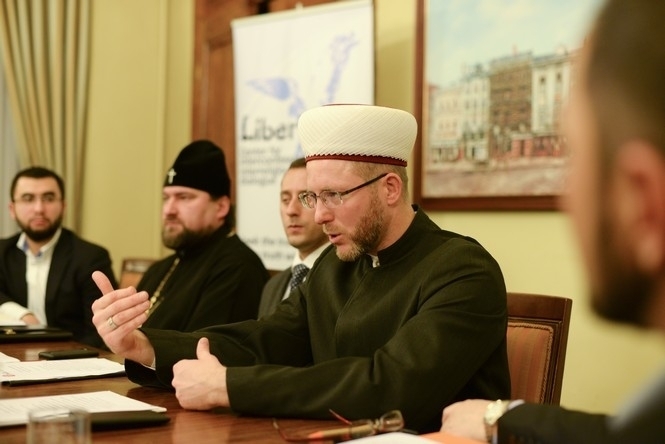Before building a mosque in Lviv, Crimean Tatars have to integrate into a new environment so as not to cause tension among the local population.
Mufti of the Spiritual Directorate of Ukrainian Muslims ‘Ummah’ Said Ismahilov was reported as saying this on December 10, at the interfaith roundtable on Christian-Muslim dialogue by iPress.ua journalist Iryna Naumets.
“Building mosque is a great idea, but it is still irrelevant in Lviv, because it should be built at least during several years. I know from practice that after the construction of a large mosque it will require lots of money for maintenance. If there is no large community of believers, we won’t be able to keep it,” he says.
Religious activist thinks that the Crimean Tatars have comparatively recently arrived in the city, and they are not regarded as a permanent community. He is confident that if Crimea becomes Ukrainian again, the majority of Crimean Tatars will return home and leave the places of temporary residence.
“The majority of displaced are dreaming to return. And what will happen if we build a large mosque and Muslims go away from here? We have some prayer houses here. Our religious community is making repairs to the cultural center, which will serve as a prayer hall and will be open to all Muslims,” Said Ismagilov believes.
He says that before building a mosque they should integrate into the new environment and show that the Crimean Tatars, though having a different religion, are the same Ukrainians.
“It is important that every major site has a mosque. Meanwhile we can get along with houses of worship, and if the community organically integrates, then we can build a mosque,” he added.
At the same time, the head of the Crimean Tatar Muslim religious community ‘Yihsan’ Ernest Abkelyamov notes that the construction of the mosque is one of three topical issues resulting from an increase of the Crimean Tatar settlers.
“After several meetings with local authorities the first question voiced was an opportunity to expand a land plot on Holosijivskyi cemetery for the burial of Muslims according to mandatory religious Muslim rites. And the second issue discussed is allocation of the houses of prayer where the Muslims could pray and organize classes for learning the basics of religion. The third is the issue of mosque,” says the religious leader.
He believes that the mosque for Muslims is not only a religious building where they come for Friday prayers and rituals, but also a public place that makes a Muslim feel secure, where he can find understanding and solutions to his problems.
“It is easier for Muslims to preserve their culture and faith and pass it on to their children within the walls of the mosque. The mosque is the profession of Islam in public space and respect of the Muslim believers. The mosque is not a threat to historical and highly cultured Lviv,” he says.
Abkelyamov underscores that his fellow settlers are satisfied with the hospitality of Lviv residents and have no complaints.
“Whenever I talked I did not hear any bad words from the local population. We thank Lvivites for hospitality,” he adds.
Ukrainian dissident Myroslav Marynovych supports the desire of the displaced Crimean Tatar to build their house of worship and believes that the religious rights of all Muslims shall be secured.
He says that he appreciates the experience of Maidan, where there were not only Christian but Muslim prayers. Marynovych recalls the gesture of understanding by the Crimean Tatar community when they offered the UOC-KP their mosque for prayers as they were subjected to persecution in Crimea.
“The fact that Yevstratiy Zorya thanked and said that he would take advantage of this offer if needed is a brand identity of Ukraine to the world. We only hear sensational reports of religious clashes, and this is a gesture of respect,” says the social activist.



